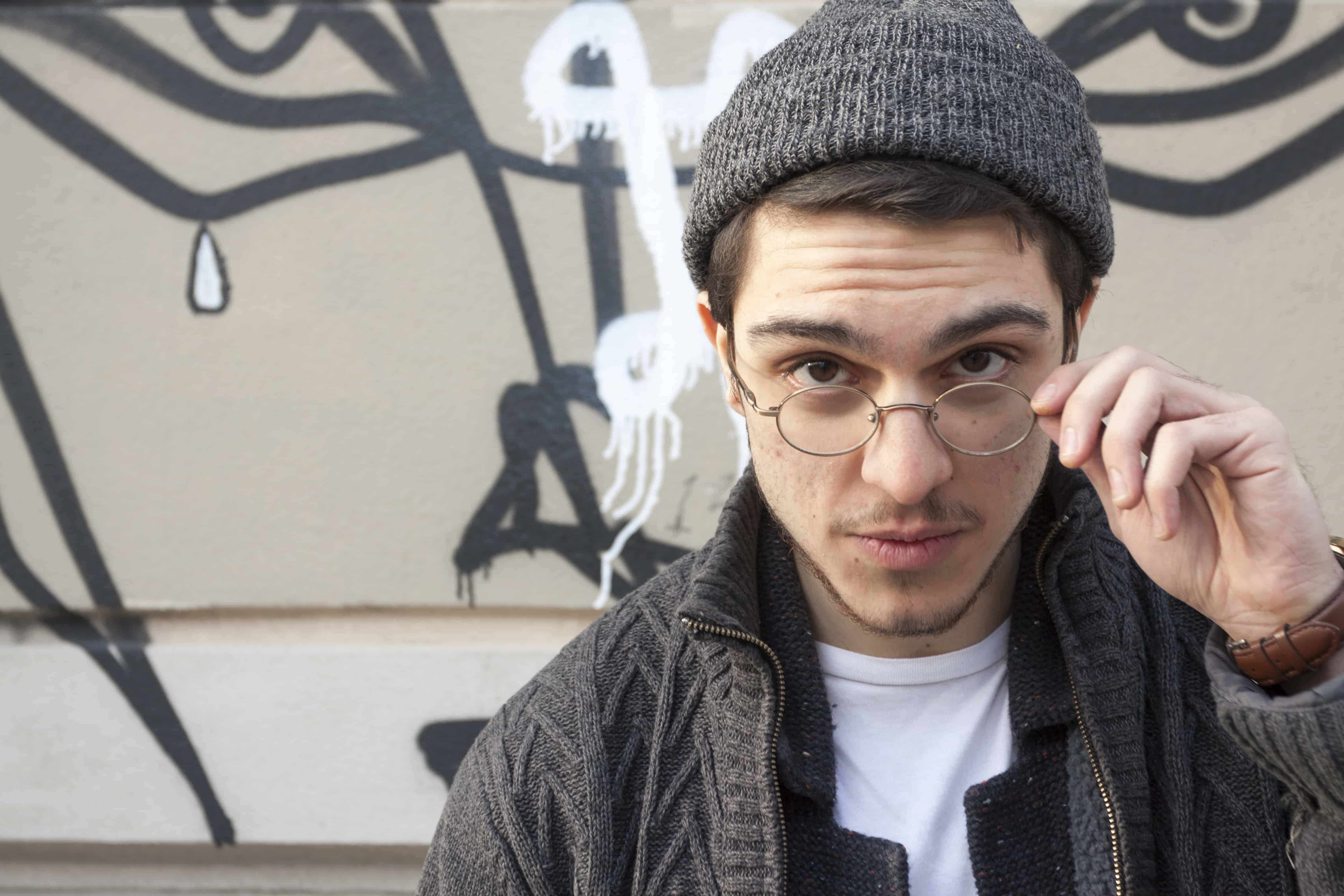“I remember it so vividly,” says Houtan Ghaffari, with regard to how he chose ‘Morfius Blue’ as his stage name.
Ghaffari is a third-year student of Literature and Critical Theory at the University of Toronto and a budding musician. So far, he has mainly performed at small venues such as Lee’s Palace, CineCycle, and The Smiling Buddha.
His Bandcamp account contains about 30 original songs, in addition to collaborations with Toronto rapper Kwesi Lion. His music is composed entirely on Logic Pro X and GarageBand, produced in his studio apartment in Kensington market.
With reference to his stage name, Ghaffari argues that The Matrix represents one of the twenty-first century’s archetypal mythologies. “I was thinking about Morpheus, and the age old question is going to become, ‘red pill or blue pill?’… If everything is an illusion, do I live in the illusion, or do I wake up?” he asks.
In The Matrix, it’s the red pill that wakes you up. In addition to changing the character’s name slightly to distinguish himself, Ghaffari says that the choice of blue in his name represented embracing the ambiguity, the illusory, and the chaotic parts of life, which contain their own truths. “Morpheus is also the Roman god of dreams, and as a god of dreams, he is always changing,” he notes. “The god of dreams naturally subjects you to his dreams, and makes them your dreams… That’s what I’m trying to do with my art.”
Ghaffari’s songs, with track names like “Falling Outta Car” and “LastMinuteSounds,” often feature an alternating falsetto like that of James Blake or Bon Iver, with crisp, simple percussion and a slow, building acoustic guitar. Still, what recurs most frequently throughout his work is a focus on imaginative textures and the creation of an atmosphere of sound that pulls the listener into the song.
The eerie lyrics of “Devil,” with steady piano notes reminiscent of a church organ or nursery rhyme, present images of a dark summons in a cloistered wood. “E L O P E,” a love ballad with echoing vocals and a slurred sound, vividly evokes the slow motion, drunken euphoria of a house party.
Throughout his work, Ghaffari attempts to bring the listener closer to the centre of his own experiences, as though attempting to merge the audience with the artist.
Ghaffari began making music in the eleventh grade at Earl Haig, an arts high school in North York, after his then-girlfriend told him he had a unique talent.
He says that music taught him to regard the painful things in his life with fresh eyes and to temper that pain with the excitement of aesthetic contemplation. “I started writing songs as oral journal entries,” he says.
In that vein, the intimate and personal dimension of art has always been important to him. “[The inspiration] can be anything, as long as it’s genuine,” says Ghaffari.
If music is to be an immersive experience, one must always widen their pool of inspiration and material. Ghaffari has gained much from raw, unpolished originality such as that found in underground band KraK’s rock and blues song “Noodle Shots.”
Ghaffari respects independent projects that have risen to the top due to their own brilliance but continue to pursue innovation. “My place is somewhere apart from the body of the music industry. I don’t think they represent anything that I have to offer,” he says.
When I ask whether he would like to be famous, Ghaffari says that he would like to, but that fame isn’t his purpose. “I’m going to be doing this anyway, it’s who I am,” he notes.
He works part time at Hibiscus Café, and art — whether it’s music or the countless collages and drawings that fill his apartment — figures into his life less as a career than as a sustained outlook and way of life.
Ghaffari rejects the idea of dropping out and turning his music into a business but hopes that our overstimulated culture, where “everyone is an artist” due to easily accessible outlets like Instagram and SoundCloud, will produce people more intent on finding and consuming authentic art.
For him, the aim of art is not to make money or to craft the perfect album or song, because it isn’t quite feasible with his current means. The emphasis, rather, is on making his audience see and hear as he does — that is, on making them dream his dreams.


